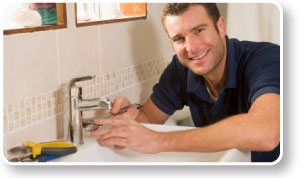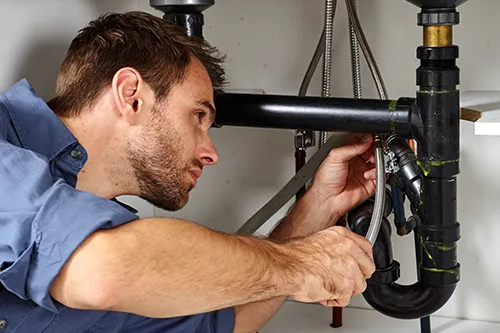Book A Service
On this page down the page you can get some incredibly good expertise on the subject of Can Hard Water Ruin Your Appliances?.

The key to long-term devices, unsurprisingly, appertains upkeep. There's no hard and fast guideline that can ensure your plumbing appliances a lengthy wear, however you can prevent unnecessary damage as well as repair services by staying clear of poor plumbing routines.
You must stop doing these 6 things else you'll keep calling your plumber over for minor faults.
Purging whatever
Yes, your commode drain leads to the drains, but that does not indicate you should discard simply anything away. Several 'flushable' products are really fantastic obstruction starters, for example dental floss. Asides maintaining evident non-flushable products like cords as well as plastics out of your bathroom, you ought to also stay clear of flushing cotton buds, menstruation items, wipes, daipers as well as condoms down the bathroom drainpipe.
Putting grease in the sink
We understand properly dealing with oil after a hearty meal is a pain. Yet merely pouring it away can do long-lasting injury to your pipes. "The fat and grease can obstruct your drain severely enough to compel you to call a plumber," discusses Dawson. "Plumbing functions best when it's well cared for-- not abused with grease."
Utilizing way too much drain cleaner
Utilizing a drainpipe cleaner more than once or twice a month is an indication that something significant is taking place within your pipes. Currently, instead of encountering the primary issue, you choose a quick fix; a carbonated drain cleaner. Rightfully, a drainpipe cleaner will deal with the clog, but at what expense?
The chemicals in a drainpipe cleaner can hasten the rust of your pipes. Include that to whatever underlying problem is creating the obstruction and you might have to a severe problem on your hands.
If you experience too many clogs, call your emergency plumber as opposed to making use of a drainpipe cleaner.
Not rinsing recipes before packing them right into the dishwashing machine
it's called a dishwasher, but tossing in recipes, pots, and also pans covered in big food particles can really trigger some severe damages to the home appliance, bring about long-term troubles down the line. "Home owners might have to get their dishwashing machine repaired more frequently if they do not rinse their meals prior to loading, or at least eliminate bigger food items," describes Audrey Monell, proprietor of Forrest Anderson Plumbing as well as A/c in Glendale, Arizona. "Food that gets stuck on meals creates the dish washer to function harder, which can wear down parts much faster, resulting in problems."
DIYing whatever
With plumbing, a stitch in time truly does conserve 9. You can stop a fullblown plumbing emergency by calling your plumber at the correct time.
You might have found out a couple of plumbing hacks from your papa, however you ought to know where to draw a line and call an expert. For instance, you may be able to deal with a blockage yourself, however you shouldn't try to transform a pipeline. You could mismatch pipelines or overtighten a bolt, triggering more injury as well as damage than you thought. Calling a plumber is a safe and economical decision.
Not altering your dishwashing machine hose pipes
One simple way to make sure that you use your dishwashing machine for many years is to change the hose at least once in five years. This also makes an application for washing machine hoses.
With time, food particles, soap as well as oil can develop blockages within your pipes. Replacing them on schedule will avoid any kind of presure build up that can damage the inner workings of your dishwasher or cleaning device.
An enhanced steel intertwined hose does a terrific job of prolonging your device's use time.
No winter season safety measures
Severe weather are bad for your pipelines, particularly if they're made of steel. You need to shield your revealed pipes, and your water tank, even if you have a water heater. You need to additionally switch off your garden hose valve and also any other outside water channels. These networks are outlets for cold; you pipelines can start to freeze from outdoors if you don't.
WAYS TO AVOID DAMAGE TO YOUR PLUMBING SYSTEM
DON’T DUMP GREASE DOWN THE DRAIN
Grease is your plumbing’s worst enemy. After cooking bacon, it’s wise to find a better way to dispose of the grease. Grease is solid at room temperature and should never find its way to your pipes. Once the grease gets to the P-trap under your sink, it solidifies and becomes a sticky trap for debris and gunk. The blockage will eventually clog or slow your drain.
If the grease finds its way to the sewer, it will meet with all sorts of wastes and cause a blockage. If you pour grease down the drain accidentally, remove it with natural cleaners like baking soda and vinegar.
FLUSH YOUR GARBAGE DISPOSAL
A garbage can in the kitchen is unsightly, and that’s why people invest in garbage disposals. Your garbage disposal helps to reduce odors in the kitchen sink; it mutilates the food particles and enables them to drain easily. The disadvantage of having a garbage disposal is that it can harbor waste and odors.
Avoid putting items that cannot be broken down easily into the garbage disposal. Running cold water often helps to flush food particles from the trap to the waste pipes without damaging the moving parts.
If the moving parts start grinding, turn off the faucet and add one tablespoon of baking soda and one cup of vinegar. Turn on the garbage disposal for several minutes until the grinding stops. Then, flush it with hot water.
DON’T FLUSH UNWANTED MATERIALS IN THE TOILET
Be careful when flushing things down the toilet. Even food scraps don’t break down as easily, meaning that they can clog your sewer line. The last thing you want is to have a clogged toilet in your home.
If you drop something into the toilet, don’t assume that a flush will unclog it. Instead, try to remove it with a plunger. If the plunger does not work, use the plumber’s snake to remove it. Fill the toilet with water, and use the plumber’s snake to dislodge it. You might have to call a plumber if these methods don’t work.
FIX YOUR FAUCETS
Almost every homeowner has experienced a problem with dripping faucets. Besides being annoying, they can drip away gallons of water over time and cost you money. The internal washer becomes worn out and dislodged, especially if you live in a hard-water region.
Turn off the water supply and disassemble the faucet with a wrench. Tape the edges of your wrench with tape to avoid scratching your faucet. Remove the mineral deposits with vinegar and a scouring pad. If the ring and washers have become rusty and disfigured, be sure to replace them.
DEAL WITH LOW WATER PRESSURE
If water trickles from your faucets instead of gushing, you might have a deeper problem to deal with. Find out whether the problem has affected one appliance or the entire house. If your neighbors are not having the same problem, then you need to check the main water supply valve to ensure that it’s fully open.
In some cases, low water pressure means that most of your appliances and pipes are clogged. You need to disassemble the affected appliances and use vinegar to dissolve the mineral buildup.
WINTERIZE YOUR PIPES
When water freezes in the pipes, it expands significantly as it turns to ice. This expansion generates enormous pressure that causes damage to the pipes. Experts recommend winterizing your plumbing if your house will be vacant for a while. You don’t want to deal with all sorts of problems when you return home from holiday.
During the winter, it’s wise to prepare your plumbing for the freezing temperatures by insulating the pipes in the unheated areas. These include the crawlspaces, attic, and garage. Let the faucet drip as running a trickle through the pipes will prevent them from freezing.
Pipes freeze and burst at 32 degrees Fahrenheit, the freezing point for water. According to Energy Star, you should set your thermostat at 70 degrees Fahrenheit during the winter for optimum energy efficiency.
https://hufthomeservices.com/8-ways-to-avoid-damage-to-your-plumbing-system/

Do you like reading about Don’t Let an Earthquake Damage Your Plumbing? Make a review directly below. We'd be pleased to listen to your responses about this article. Hoping that you visit us again in the future. Are you aware of another person who is enthusiastic about the subject? Please feel free to share it. Thank you for your time. Come back soon.
Call Us Today